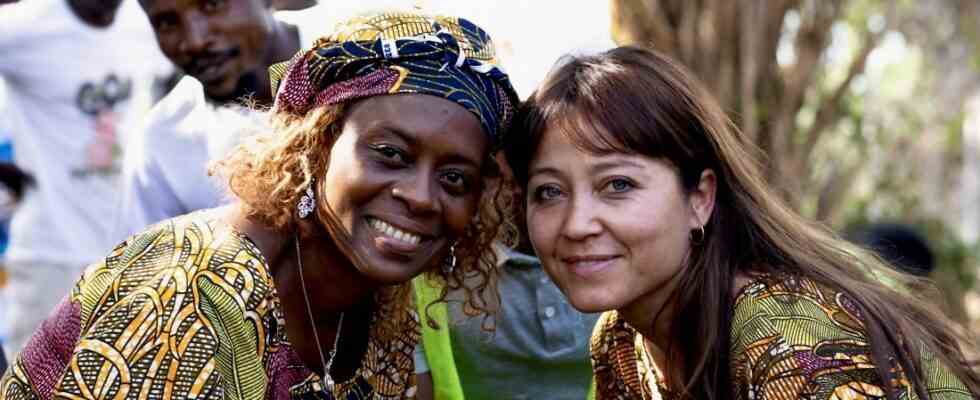Rothumba is a beautiful piece of earth, Stella Rothenberger thinks. The beach, the sea, the palm trees. However, the beauty is put into perspective when you know the problems: hardly any infrastructure, hardly any chance of education and income – Sierra Leone is one of the ten poorest countries in the world. Rothenberger and her non-governmental organization (NGO) Pfefferminzgreen, together with their local partner, Rugiatu Neneh Turay, want to change that. There is a ten-year plan for the development of the region, which, at least from the Augsburg perspective, is labeled “Fuggerei of the future ” runs. The idea of the oldest social settlement in the world to enable people to live in dignity and self-determination should also be the guideline for the project in Sierra Leone.
The Fuggerei celebrated its 500th anniversary this year. For the anniversary, those responsible wanted to revive the founding ideas of the Fuggerei: “In Exemplum”, Jakob Fugger brought the social housing estate to life 500 years ago, so it’s definitely worth imitating. A project is also planned in Lithuania, and in Sierra Leona the laying of the foundation stone for a school building is actually starting.
It is important for Rothenberger and the chairman of the Fuggerei’s foundation board, Alexander Erbgraf Fugger-Babenhausen, to emphasize that the sustainable, social settlement in Rothumba is based on the ideals of the Fuggerei. However, the concept cannot simply be transferred one-to-one to other parts of the world. “We need individual solutions that fit the local situation,” says Rothenberger.
The initial question was what a local Fuggerei in Sierra Leone could look like. Rugiatu Neneh Turay drove to the village and asked what the locals needed. Rothenberger calls her approach “bottom up”. Development aid in the traditional sense does not work, the project is intended to help people to help themselves. So the villagers listed their needs, which then flowed into a priority list. “It’s no use if we build a hospital, but then nobody has the money to be able to afford medical care,” says Rothenberger.
So the ten-year plan is divided into three phases: In the first phase, people receive small, interest-free loans, a school is built and a vocational training center is built. As soon as people earn more and enjoy a better education, the infrastructure should be improved: better roads, solar systems, electricity. The fishing village needs sensible boat docks, and only when the development has progressed, according to the plan of the local organization, can topics such as a hospital be considered.
The local and specialist knowledge of the two founders is crucial, says Fugger-Babenhausen, “so that people can improve their living conditions on their own and thus lead a self-determined life in dignity”. 4,000 people in Rothumba and the surrounding villages are to benefit, with the focus on the living conditions of women and girls. Fugger-Babenhausen hopes that the DNA of the Fuggerei’s 500-year-old foundation concept will be spread internationally in this way. The Fuggerei should also help to find people who will support the project in Sierra Leone, as the Federal Ministry for Economic Cooperation and Development is now doing in the first phase.
500 years ago, the merchant Jakob Fugger had the social settlement built in Augsburg. To this day, people can find accommodation there for 88 cents a year.
(Photo: Karl-Josef Hildenbrand/dpa)
The project should be culturally appropriate, says Rothenberger. The second planned project for a Fuggerei of the future in Lithuania, for example, is not about satisfying people’s basic needs like in Sierra Leone. The founder there wants to create a settlement that offers pensioners a safe home, but where younger generations are also at home. It is an attempt to find concepts for an aging and also poor society.
For an annual rent of 88 cents, Augsburgers still have the opportunity to find a place to stay in the Fuggerei, even if money is otherwise tight. But you will also find space there to gain a foothold in life in many different ways, not just by having a cheap roof over your head. The idea has endured for 500 years because it is tailored to local needs, today as it was then. In Sierra Leone, they hope to have initiated a similarly sustainable project with their solutions tailored to the situation there.

